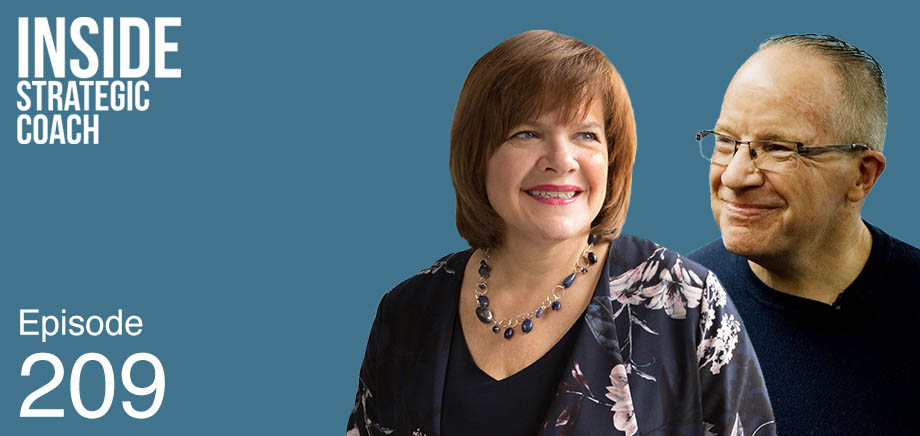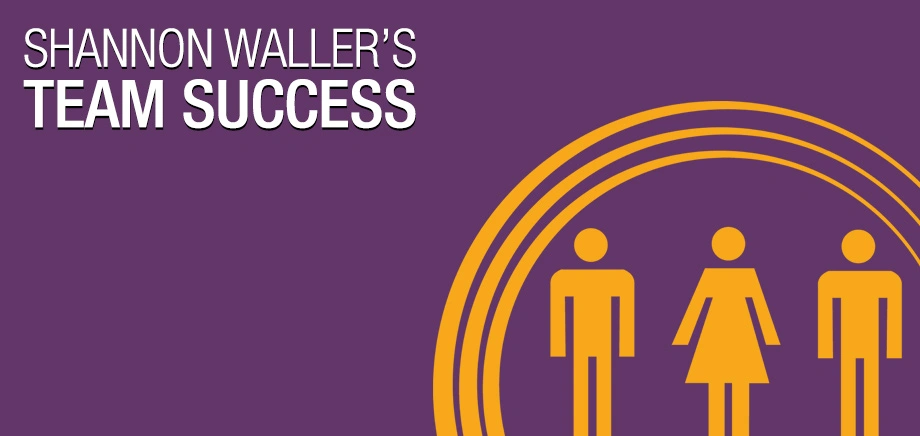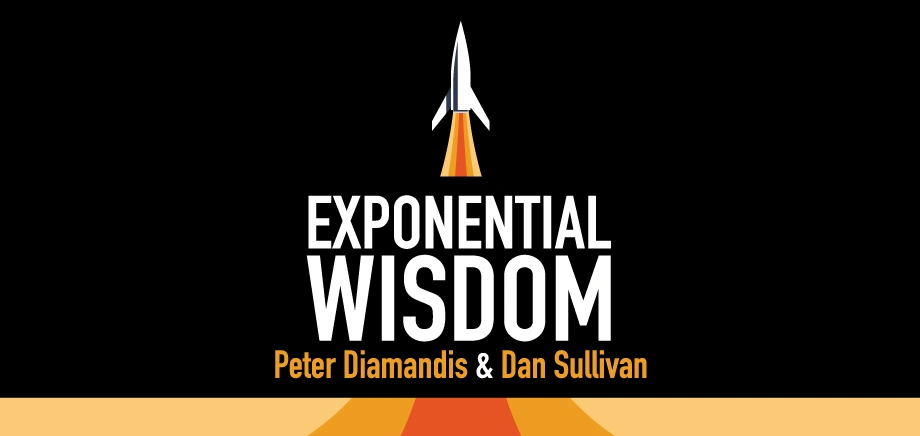How To Get Paid For Doing Only The Things You Love
August 06, 2024
Hosted By
 Dan Sullivan
Dan Sullivan
 Shannon Waller
Shannon Waller
In this episode, Dan Sullivan and Shannon Waller discuss the philosophical and moral foundations of entrepreneurism, tracing its roots from Adam Smith's theories to present-day insights. They explore the correlation between creating value, self-interest, and moral philosophy, providing valuable insights for entrepreneurs today and proving that entrepreneurship lies at the foundation of a prosperous world.
Here’s some of what you’ll learn in this episode:
- The rewards—financial and otherwise—for being an entrepreneur.
- The prevalent attitudes in higher education that often stand in opposition to entrepreneurialism.
- How Dan has used setbacks on his entrepreneurial journey to his advantage.
- The type of organization you can create when you embrace the entrepreneurial way of thinking.
- Why bureaucratic environments stifle creativity and limit money-making opportunities.
Show Notes:
Being an entrepreneur is a very intelligent way of planning out and living your economic life.
Many successful individuals are often perceived to be driven by past traumas, but entrepreneurship can simply be a means to pursue your passions and get paid for it.
When people within a company feel they can’t be themselves, politicking and bureaucracy take over.
When you work with entrepreneurs, you know when they’re happy and you know when they’re not.
Entrepreneurial instincts can only take you so far. You also need hard, bankable skills in order to be successful.
Entrepreneurism is the only economic forum where you have a direct, interactive relationship with the actual marketplace.
The closer you are to understanding why someone is willing to pay for the results your skills produce, the more knowledgeable, capable, and confident you will become.
When you use your capabilities to continually create increasing value for others, they’ll continually write you bigger and bigger checks.
Every corporation that exists today began with an entrepreneur having a direct relationship with the marketplace.
Dan defines two universal entrepreneurial laws: You must depend upon your own capabilities for your financial security and you should not expect any reward unless you've first created value.
Resources:
Blog: Time Management Strategies For Entrepreneurs (Effective Strategies Only)
Book: The Wealth Of Nations by Adam Smith
Book: The Theory Of Moral Sentiments by Adam Smith
Book: The Decline And Fall Of The Roman Empire by Edward Gibbon
Episode Transcript
Shannon Waller: Hi, Shannon Waller here and welcome to Inside Strategic Coach with Dan Sullivan. Dan, I was in a workshop with you yesterday and you said something that I was like, ooh, I can't wait to interview you on this. And you said that entrepreneurism is a roadmap for getting paid for your Unique Ability. And I thought that is one of the coolest and most interesting definitions of entrepreneurism ever. So let's unpack this a little bit. What caused you to say it? Why is it important for entrepreneurs? Let's do all the things.
Dan Sullivan: Well, there's a lot of what I would say psychobabble in today's world that people are successful for negative reasons. In other words, that they've become super successful to prove something about themselves that they were deprived of when they were children or everything like that, but it's more that the good things that we do in life are strictly a function of the bad things that have happened to us in life, and they're sort of a compensation we're trying to compensate for certain things. It's probably an interesting topic because sometimes it's true. But then people would like to make it a universal rule that you're only successful because you're trying to compensate for some deficiency. And it usually has to do with when it relates to entrepreneurism, you're only an entrepreneur because of some sort of extreme trauma in your childhood years. And you've had to do this so that you get free from your sense of trauma.
You know, let's put it that way. I can't relate it to my own childhood, which was a very happy childhood. I can't think of any particular trauma that I had as a child. And I have tremendous memories. I mean, if I didn't have a lot of memories, maybe a whole bunch of stuff happened that I've covered up or I'm denying or something like that. And I have happy memories, you know. So I didn't become an entrepreneur because of unhappy childhood, because of unhappy memories. And I said, what if it's just a neat way of getting what you want to do in life and you get paid for it?
Shannon Waller: I like this perspective.
Dan Sullivan: No, no, no. Yeah, it's too simple. I said, yeah, but let's just offer it as an alternative. We're in a weird period of history right now where people are justifying their complaints on the basis of their trauma. As a matter of fact, Harvard University, you know, they have to take tests. They have SAT tests. They have ACT tests. So they got to be, you know, in the top 1% of high school graduates to get even considered by Harvard and the other elite universities. But Harvard threw in another one, probably within less than 10 years. They have to write an essay on how they're a victim of oppression. and that they have tremendous sympathy, and the kind of oppression that they experienced in life, they want to remove. One of their big moonshot goals for going to Harvard is that they're going to learn how to remove this oppression from the planet. Well, if that's the way you get into Harvard, I bet you can write some really good stories, if getting into Harvard is your goal.
But the interesting thing about it is that it's fiction. The thing is, if it's a competition of fiction, after a while you start to believe this stuff, but I've taken a completely different approach to this right from the beginning, that being an entrepreneur is a very intelligent way of planning out and living your economic life. And. One of the rewards is you get paid a lot more. And one of the other rewards is you get paid a lot more for being who you truly are. That seems like an incredibly smart formula for living your life. It seems to me, because I'm still discovering things about it at 80 years old, and I started when I was 30, I became a true entrepreneur when I was 30, that I've gotten smarter and smarter and smarter. And my getting smarter has enabled a lot of other people to get smarter about being an entrepreneur. And it's all positive. And it's been a positive winning streak for about 50 years. Setbacks along the way, but those became new lessons for being smarter next time.
Shannon Waller: And it's interesting, I think, depending on which belief system you're a part of, it leads to some different results.
Dan Sullivan: Right.
Shannon Waller: I think it leads to a different impact. And I'm on the second one you talked about as well, because it's like when you actually have this, it's like, yeah, this is where I can be my most authentic, real self, real is very important to me and to you, and get paid for it, and get highly paid for it. So you're paid for your uniqueness, you're paid for your attention, and I love how you said it's a highly intelligent way of operating in the world. I've worked with entrepreneurs for 33 years now, and one of the things I appreciate about them from my previous experience with people who are high level and I was working with General Motors of Canada, really great, nice, cool people, but they did not feel like they could be themselves, which led to politics and bureaucracy.
And then you work with entrepreneurs and they're like, these folks are real. You know when they're happy, you know when they're not. And they're so genuine. So I think if you can just embrace that as a way of thinking, then it leads you to create a different type of organization, Unique Ability, Unique Ability Teamwork. You don't feel guilty or that you're supposed to do things that you don't enjoy doing. I just think it leads to a very different result. What happens if you actually fix your trauma, then what? And the other model. So the other one I see has some limitations. What are your thoughts on that, Dan?
Dan Sullivan: Yeah, well, it kind of depends on a lot here on what your outlook on life is. Anyway, I think entrepreneurism is a methodology. First of all, I think it's a skill. You can have entrepreneurial instincts, but there's got to be a real acquisition of all sorts of skills. Okay. But the one thing that has going for it is that entrepreneurism is the only economic forum where you have a direct interactive relationship with the actual marketplace.
Shannon Waller: Mm-hmm. Yes.
Dan Sullivan: Okay. If you work for a corporation or you work for other kind of organization, you have lots of buffers between you and the marketplace and large bureaucracies. There's so many buffers that you don't even know how the money is being created that's paying for your salary. Therefore, you're not very creative about it. You're not very innovative about it. But the closer you are directly to why someone is paying with their money for the value of the results that your capability is creating, you can become extraordinarily knowledgeable. You can get smarter and smarter. You can become more and more capable. You can become more and more confident with it. Okay. So it seems to me for my last 50 years that I can't comprehend if people really, really understood how this works, why they would choose any other way of making their way in life.
Shannon Waller: Makes sense. I like that. Well, and remember, Dan, early on, great crossover book, actually, you talked about, you know, as an entrepreneur, you have a direct relationship with the marketplace. There's no mediations. That was the word you're using back then between you and the world. And entrepreneurs have an intimate-
Dan Sullivan: That's the word I wanted to use, mediations. Yeah.
Shannon Waller: Okay, good. I'm glad I remembered it. And that entrepreneurs have an incredibly intimate relationship with the 15th and the 30th of the month.
Dan Sullivan: Yeah.
Shannon Waller: Yeah, that's when you know whether or not the marketplace is actually going to pay you for what you've done.
Dan Sullivan: Yeah. And you have to put the emphasis on creating greater and greater value using your capability to create greater and greater value for other people so that the amount they all pay you keeps increasing.
Shannon Waller: Mm-hmm.
Dan Sullivan: It's increasing. Yeah. I really like knowing how things really work.
Shannon Waller: Mm-hmm.
Dan Sullivan: And how entrepreneurs make their way in the world, I think, is the center of how everything else works. There's no corporation that exists that didn't start with an entrepreneur having a direct relationship with the marketplace.
Shannon Waller: Yep. Very, very true. Yeah, and keeping it real is where the innovation, the learning, the intelligence comes from is what I'm hearing. Yeah, I love that. So Dan, if someone's going to take action on this, if they had the other perspective, how to really lean into this particular way, it makes me think of the exercise that you've been doing at Free Zone, which is really anchoring people into when they're, in this case, it was their 10x best, but really it's their Unique Ability, you know, what are their activities and what were some of the best examples of that. And then it'd be cool to connect three of those together. Because I think you would pretty quickly see, if you get clear on when you've created the most value, when you've been having the most fun, when you've been the most intelligent, that there are some connections there that would really orient you to being able to see exactly what you're talking about. Does that land for you?
There's an interesting historical study on this, and it has to do with Adam Smith. Adam Smith was a professor in Scotland in the 1760s, 1750s. The title of his study that he taught at university was called Moral Philosophy. Okay. And as he understood moral philosophy, it's in what respect do people do things that are both good for them and good for other people? That's what he called moral philosophy. You have good behavior that does good things for other people. And in doing so, it's also the best thing you could do for yourself.
Shannon Waller: Dan, is that like what I learned in Self-Interest?
Dan Sullivan: Yeah, so he wrote two books. One he's very famous for, and the other one is Forgotten. And his two books are The Wealth of Nations, which is considered basically the founding of capitalism as a major force in society, 1776. I think it came out about a month before the American Declaration of Independence. I think it was May or June of 1776. And in the opening paragraph of The Wealth of Nations, I'll paraphrase it here because I don't remember the exact words, but the thing was, it is not primarily for your benefit that the baker, the butcher, and the other trades in the world do what they do, but they do it out of their own self-interest. And that people operating on their own self-interest is a very fundamental force in human affairs. And we all get that. Most people get that.
But in his other book, which is called The Theory of Moral Sentiments, he says that in spite of everybody being self-interested, humans also have the capability to put themselves in other people's shoes and understand the situation of other people. Okay. And a lot of people seeing these two said, well, this is really contradictory. Which is it? Self-interest? Or is it seeing the world through someone else's eyes? Which is it? And he says, well, actually, you can't have the one without the other. There are two sides of the same coin. And he called this moral philosophy. Okay. And he said, and it just happens to be that this economic interchange between people is at the very basis of moral philosophy. This is why people do good things in the world that benefit other people and benefit themselves. Okay.
Well, that's entrepreneurism. He was describing entrepreneurism. He became very famous for The Wealth of Nations. Okay. And it's very few people that I talked about this who know about the other book. It's just as thick. But I was in Glasgow. He basically became famous in Edinburgh. But I was in Glasgow and he's buried in a graveyard in Glasgow. And I went to see his grave and said, Adam Smith, born this year, died this year. The author of Theory of Moral Sentiments. Really? Nothing about the wealth of nations. So I think his heart was more in this, well he was a professor of moral philosophy, so he was more interested in morality than he was in economics, but at a certain point he said it's economics where the greatest moral philosophy actually happens, and it's in this interchange between someone who makes something and someone who pays for it, and that is the true heart of all philosophy on the planet. And the most good that humans can do for themselves and others happens to be in this activity.
So that was 1776, and in 1804, a French philosopher who was an avid student of Adam Smith defined entrepreneurism. And my feeling was that Adam Smith didn't have a real handle on this. But this French Jean-Baptiste Say said that an entrepreneur is someone who takes resources from a lower level of productivity to a higher level. Well, that sounds to me like you're making something better in the marketplace.
Shannon Waller: And Dan, what came to mind kind of more the way you would talk about it is like using your Unique Ability to create value for your audience, which is how we talk about it in the Program all the time. So it benefits the other person. And in fact, you don't get to do what you love to do unless it creates value for someone else. That's awesome.
Dan Sullivan: I'm more and more convinced as I go along that entrepreneurs who are really creating value are the most moral human beings on the planet.
Shannon Waller: I love that. Just saying.
Dan Sullivan: It's one take on things.
Shannon Waller: And I love it because it actually, to me, it's counter to some of the things like, oh, capitalism is bad. And people who pursue that are just out for their own greed or their own selfish things. And it's like, certainly in our experience, that's not the reality at all. So I appreciate this, the fact that it is actually an incredibly moral thing to do. And it's so real. There's no mediation between you and the marketplace. You're willing to put yourself in front of people, take a guess, a bet, make a risk that it's going to work and keep learning about that. And that's a very courageous activity.
Dan Sullivan: And this is the kind of stuff I read on Free Days when I'm not working. Yeah, but it's really interesting, and the most advanced parts of the world where the most good has been doing people have this as more consciously as a central principle. And the U.S., I think, is the country that has set things up most to favor this entrepreneurial activity.
Shannon Waller: And it's individual, individuals creating value for other individuals rather than some overarching structure, aka government, to do it.
Dan Sullivan: And that's where the greatest value has been created. Somebody did a podcast of 1776. There were three things, possibly four things, that are very noteworthy about 1776. I think in March of that year, James Cook, I think another Scott, came up with the first steam engine that produced 20% more energy than it used. And this steam power is the great trigger for the industrial economy. And then you had Adam Smith writing The Wealth of Nations, and I think it was May or June. And then you have The Declaration of Independence. And I think you could do a nice Triple Play on these three things. But it's very, very interesting.
There was another major book that came out in 1776, and it was Edward Gibbon, a Brit, who wrote The Decline and Fall of the Roman Empire. I'm making a creative jump here. But I think the decline of the Roman Empire happened because the Roman Empire was basically theft. You know, and when they were a republic, it was very entrepreneurial, but we were talking about four or five centuries later, and they had become, you know, basically a pillaging empire because they had lost the moral philosophy of creating value for other people and getting paid for that value. So anyways, whatever it is, some years are more interesting than others. And I think 1776 was an interesting year.
Shannon Waller: It was a very pivotal year, especially in terms of thinking and ideas, which is kind of amazing. What you just said reminds me of your two entrepreneurial laws.
Dan Sullivan: Yeah. First one is that you depend upon your own capabilities for your financial security. And the other one is you do not expect any reward unless you've first created value. They're very moral. These are very moral.
Shannon Waller: Mm-hmm. Yeah, that kind of encapsulates everything you've been talking about with Wealth of Nations and The Theory of Moral Sentiments in those two sentences. That's really interesting. Nicely simplified, Dan.
Dan Sullivan: Yeah. Yeah, I love a philosophy podcast here.
Shannon Waller: One of our favorite things to talk about. Dan, thank you. I appreciate unpacking and going underneath some of the drivers of entrepreneurism. And, you know, very few people we know have read those two books, but I know that you have on your Free Days. So it's cool going underneath and to really understand the drivers of this. And for people who are entrepreneurs, right now you listening, it's like to feel validated in this pursuit and to realize that there's A, a long history and B, something that you're doing that is important and that makes the world a better place. So I think it will actually put a lot of people at ease, which is pretty cool. Great. Thank you, Dan.
Dan Sullivan: Thank you.
Related Content
The Impact Filter
Dan Sullivan’s #1 Thinking Tool
Are you tired of feeling overwhelmed by your goals? The Impact Filter™ is a powerful planning tool that can help you find clarity and focus. It’s a thinking process that filters out everything except the impact you want to have, and it’s the same tool that Dan Sullivan uses in every meeting.







